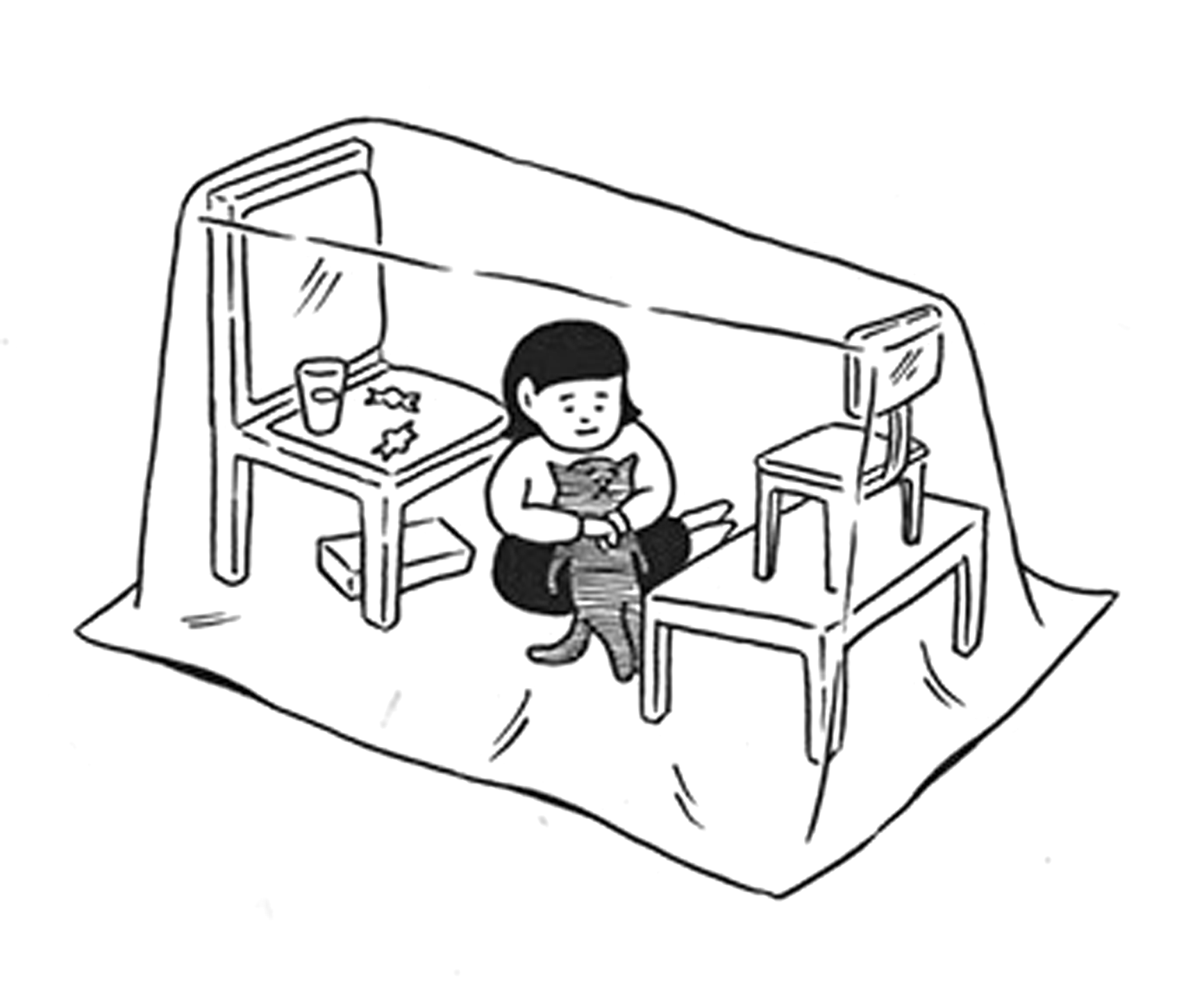I had my first room when I was about six years old, this room was a small space. After entering the apartment it was the room that lay next to the kitchen. I vaguely remember that my parents would leave the door to my room open and all of my family, that is my mother, father, and my older brother, stopped by on their way to the kitchen and would stare at me. When I think back to that time, I have little memory of “my room” and wonder why. Why do I remember so little of my first space? I do remember I had a desk in my bedroom, but I had to spend most of my time at the table in the center of the living room or kitchen. Even though I had my own space I am not sure how much choice I was given to use it.
From some point onwards, I began to think that my parents often invaded my personal space without my permission and I felt that I was being “monitored” by them. I was something like ten years old at that time. My parents’ presence, or what I perceived as their gaze, was uncomfortable for me, but there was no place in the house for me to hide in. There was no place that their sight or concern could not reach. I always had an idea or an expectation of what my space should be, or what it could be under their circumstances.
The first “space” that belonged entirely to me was a diary that had a key lock, followed by the inside of the closet in my room, and the third was a little self-constructed “fort-like” space that included “walls and roofs” made of blankets that covered a laundry drying rack and chairs.
As a child I did my best to protect my place. I would constantly build a temporary installation that perfectly fit the size of my body. As I got older I no longer created such small and maybe childish hideouts. I had learned to force my door closed, and I felt so angry at family members who would enter my room without asking for permission. Frequent quarrels with my parents followed over this issue, and I was criticized for being an “individualist” who ignores community life with family. Nowadays, one might have considered me to have been a more introverted child. Who knows? At that time, my father would come home from work and often want to talk with me in the living room, but I had shut my door. I remember once he had told me that I was an “undutiful” daughter. I shared my experience with my friends and came to learn that it was a common issue within the typical family household in Korea. Many Korean parents expect their children and adolescents to spend time in the living room as a family, and to sit around the table and have dinner together.
There has always been a scarcity of my own space. Perhaps I longed for my own space because of the experiences from my childhood. When I moved, by myself, to study in The Netherlands, I had a desire and felt optimistic rather than afraid about being alone. Finally, I was about to live alone. Now, I have been living alone in the Hague for four years and I find myself asking myself again: Do you feel you have found that complete space for yourself?
Strangely enough, I feel more incomplete than ever.
Why does the house, where I live alone, still not feel like my own space?
Perhaps, I am chasing after the clumsy hideout that I made as a child, with my body-sized furniture. Perhaps because in that hideout I found a sense of accomplishment, I gained a sense of liberation through independence, a sense of belief that I would not be blamed by anyone, a sense of comfort from soft-touch and scent. It is these emotions I remember that bring me to the question: Is it possible for me to find a space like the blanket fortress again?

